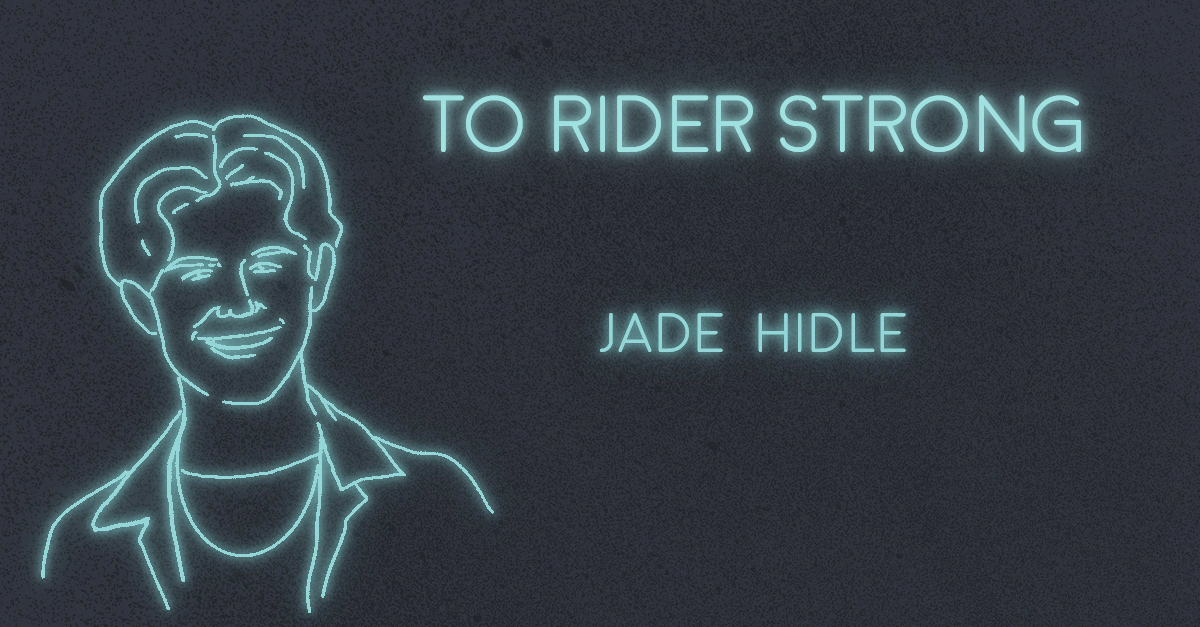
TO RIDER STRONG by Jade Hidle
You won’t remember me. It’s been twenty-nine years since my last letter. I always did my homework alone, because my mother didn’t know enough English to help. I always finished it early, so that I could watch you on Boy Meets World. Your gapped-tooth mischievous grin, your chokers, your hair-flipping. I knew bad boys at school, but we didn’t have any like you. You were a white bad boy, which is a good bad boy. And you made being wounded look so cool. I thought you would understand and that you would then elevate me to your level, turn my…
